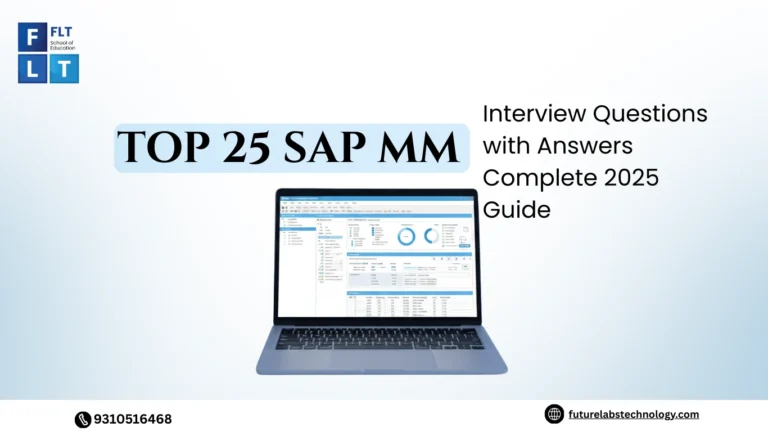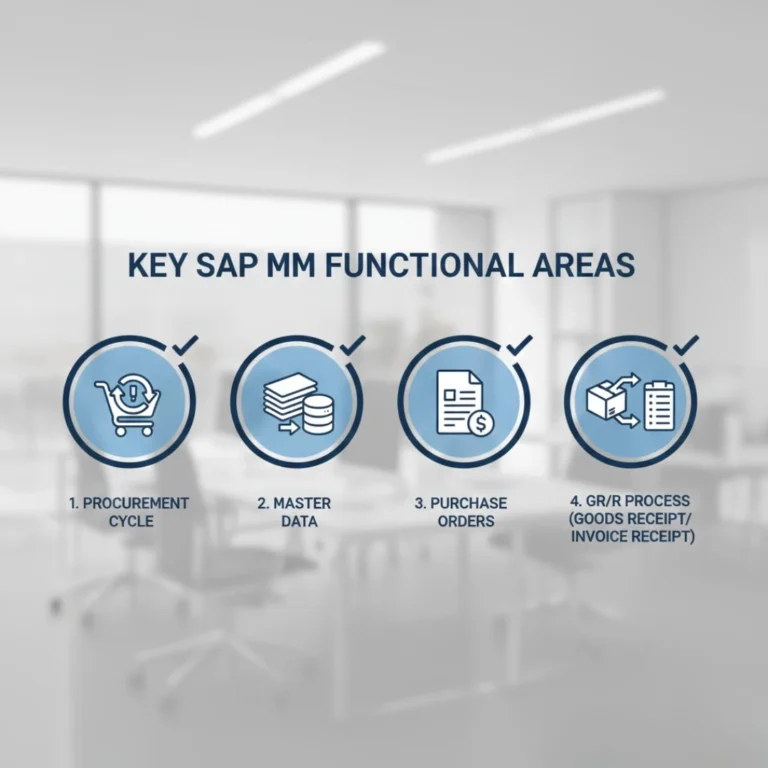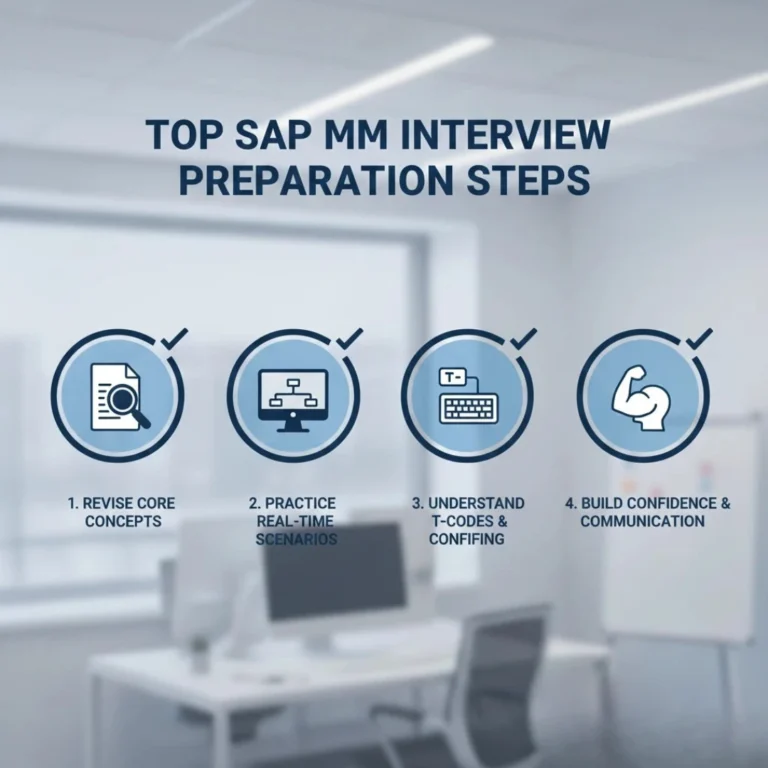
Top 25 SAP MM Interview Questions with Answers: Complete 2025 Guide
Professionals preparing for SAP MM Interview Questions with Answers often look for structured guidance that helps them understand both theoretical and practical aspects of the module. This guide is created to offer clarity, provide real interview-oriented information, and support candidates who want to build confidence before appearing for interviews. Because companies expect strong analytical thinking and hands-on knowledge, this resource helps learners understand frequently asked questions, practical scenarios, and essential concepts related to material management.
Table of Content
- Introduction
Importance of Learning SAP MM
Top 25 SAP MM Interview Questions with Answers
Technical and Functional Questions Asked in Interviews
Scenario-Based Questions
Tips to Prepare for SAP MM Interviews
Conclusion
FAQs
Importance of Learning SAP MM
Organizations rely heavily on effective procurement and inventory processes, which makes this module one of the most in-demand ERP skill areas. Since companies prefer trained professionals who can manage purchasing cycles, vendor coordination, and material handling tasks, preparing with a strong foundation becomes essential. Many learners begin their training through trusted institutes offering structured learning. You may explore this internal link for relevant training guidance using this anchor text: SAP Learning Resource.
Top 25 SAP MM Interview Questions with Answers
Understanding Core Concepts in SAP MM Interview Questions with Answers
Interviews often begin with fundamental questions to check your understanding of material management, procurement cycles, master data, document types, and workflow processes. Recruiters want to assess whether candidates understand procurement principles and system-based execution.
Technical and Functional Questions Asked in Interviews
Master Data
Master data questions revolve around material master, vendor master, and purchasing info records. Candidates must understand how these elements support procurement activities and inventory planning.
More topic-specific learning materials can be explored through this internal resource: Digital Marketing & ERP Insights.
Purchase Requisitions and Purchase Orders
Questions may include document flow, release strategies, number ranges, and approval hierarchies. Understanding how purchase orders are created, approved, and processed strengthens interview performance.
Goods Receipt and Invoice Verification
Many interviews include questions about GR, IR, movement types, valuation classes, and pricing conditions. These concepts demonstrate whether the candidate can manage end-to-end procurement.
Material Valuation and Pricing
Valuation areas, account determination, and inventory value calculation are common topics. Understanding how system valuation affects financial postings is extremely important.

Scenario-Based Questions
Handling Material Shortages
Recruiters may present scenarios involving urgent material shortages, delayed vendor deliveries, or incorrect order quantities. Candidates must explain step-by-step how they would identify the issue, communicate with suppliers, and update the system data.
Resolving GR/IR Differences
These questions evaluate your problem-solving approach. Interviewers want to know how you would handle mismatched values, incorrect invoices, or posting errors.
Complex Procurement Situations
Interviewers sometimes present complex procurement cycles requiring detailed understanding of purchasing, delivery schedules, and final settlement processes.
You may also refer to an outbound learning resource for additional certification details using this anchor text: SAP Global Certification Guide.
Tips to Prepare for SAP MM Interviews
Strengthen Your Core
Candidates must review essential concepts carefully. Reading module notes, exploring examples, and practicing online questions improves clarity.
Work With Real Scenarios
Practical exposure is extremely valuable. Even basic hands-on practice with procurement cycles, vendor communication, and purchasing workflows helps candidates answer interview questions confidently.
Focus on System Navigation
Understanding the transaction codes, document flow, and process sequence improves your ability to discuss real business situations during interviews.
Stay Updated
New updates, business trends, and ERP implementations should be reviewed frequently. You can continue learning through the Future Labs Technology Website.

Conclusion
This guide on SAP MM Interview Questions with Answers helps learners understand the most commonly asked questions, technical concepts, and scenario-based topics. By preparing with structured learning, real examples, and system awareness, candidates increase their chances of performing confidently in interviews. With consistent practice, analytical thinking, and strong understanding of procurement processes, professionals can advance toward rewarding career opportunities in the ERP domain.
FAQs
1. What is the purpose of SAP MM in organizations
It helps companies manage procurement, inventory, material planning, and vendor coordination efficiently.
2. Are scenario-based questions common in SAP MM interviews
Yes. Employers use real situations to test your analytical and process understanding.
3. Do companies look for practical experience
Basic hands-on training is preferred because it shows that candidates understand real system workflows.
4. What skills help during interviews
Understanding procurement cycles, transaction codes, material valuation, and pricing structures improves performance.
5. Can beginners learn SAP MM
Yes. Beginners can start with fundamentals and move into advanced features through structured training programs.

Very informative post! I appreciate the clarity and depth of your content. You always deliver high-quality information that adds real value to readers. Keep up the fantastic work.